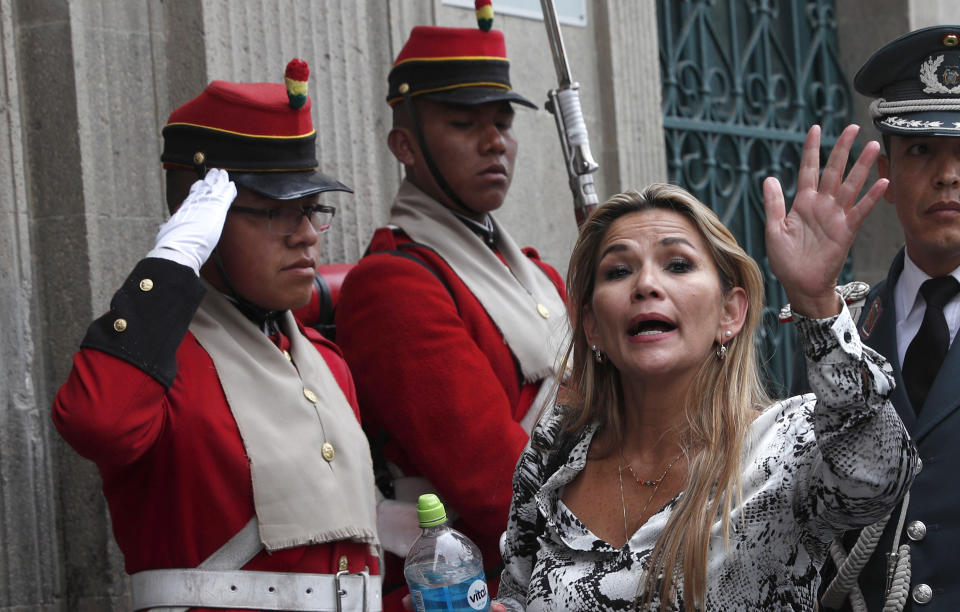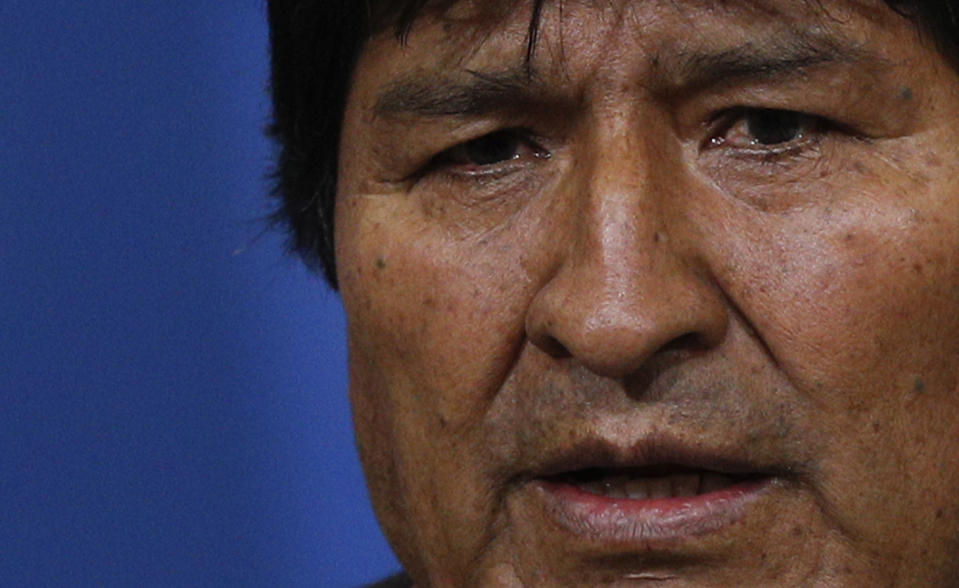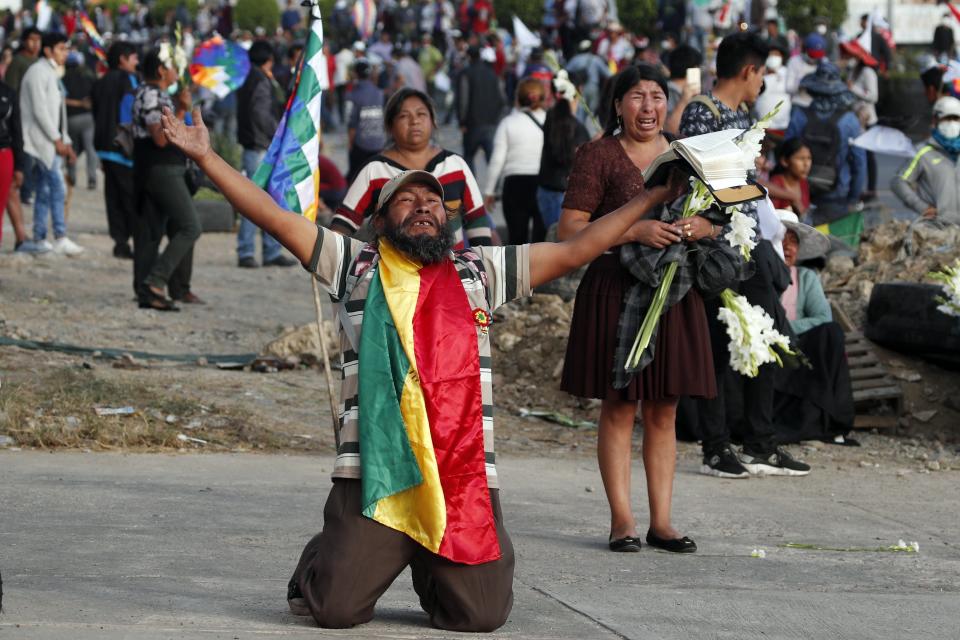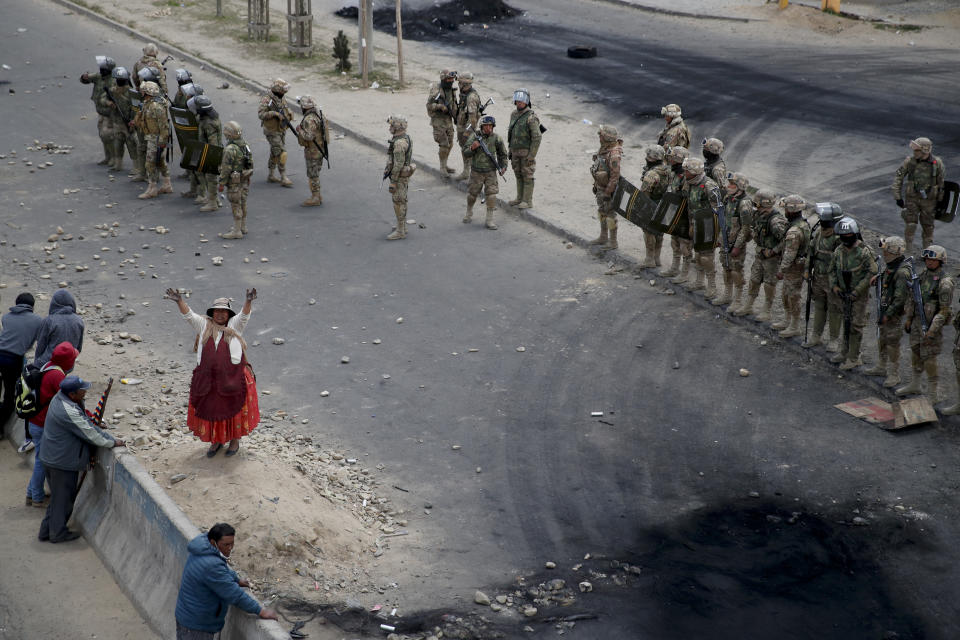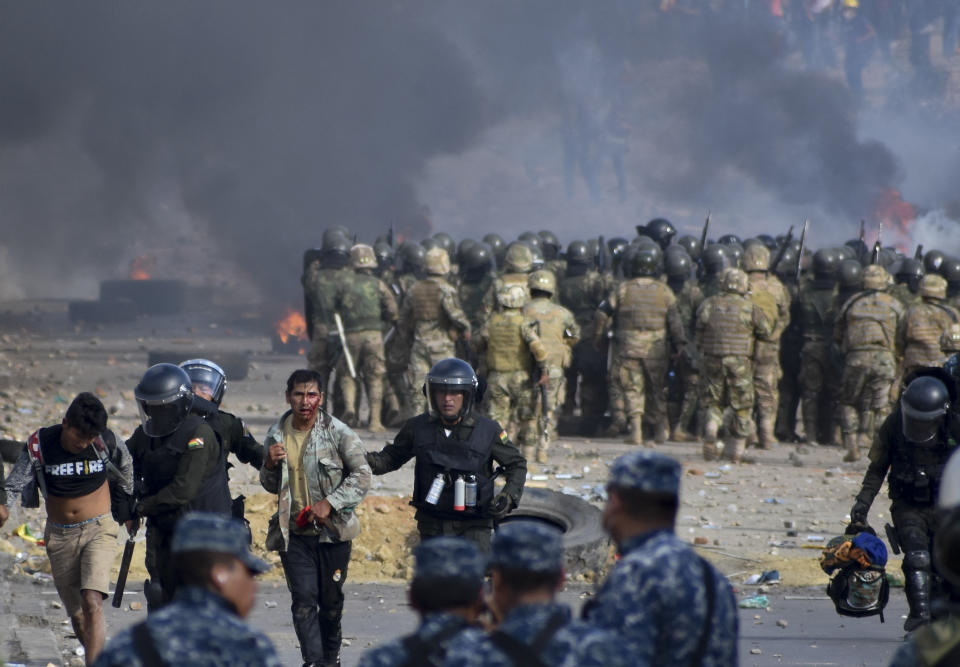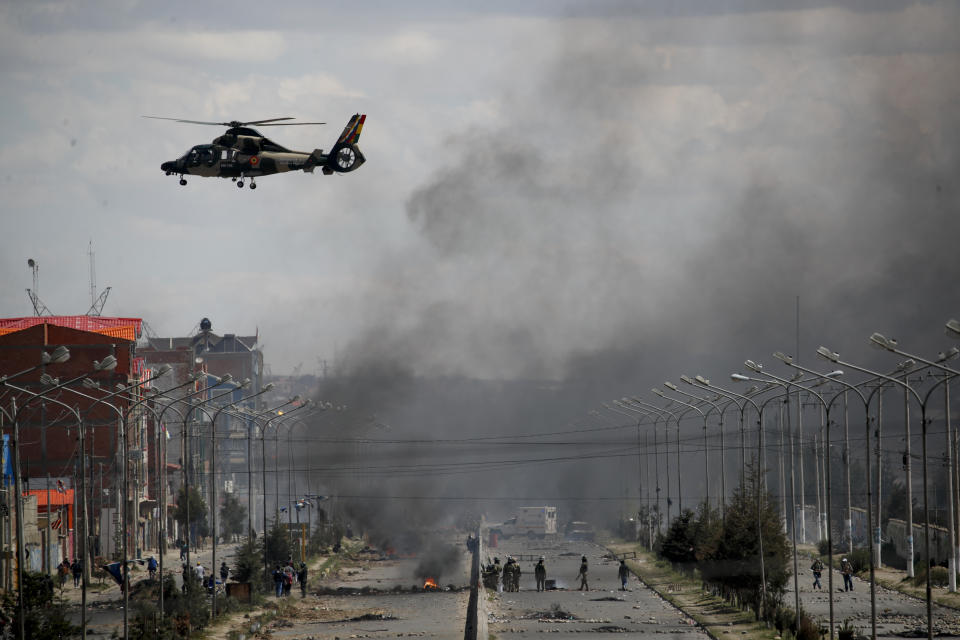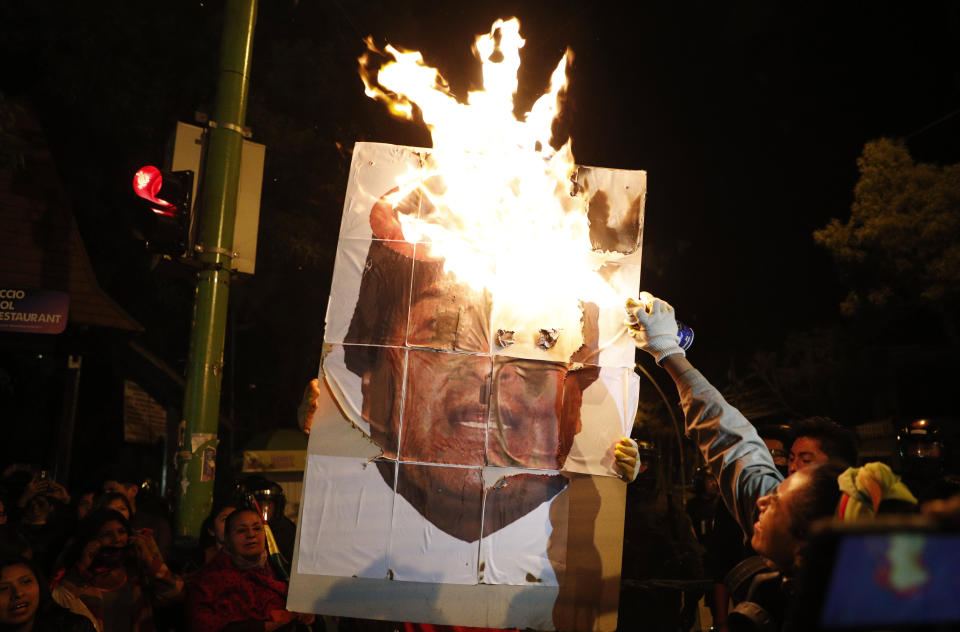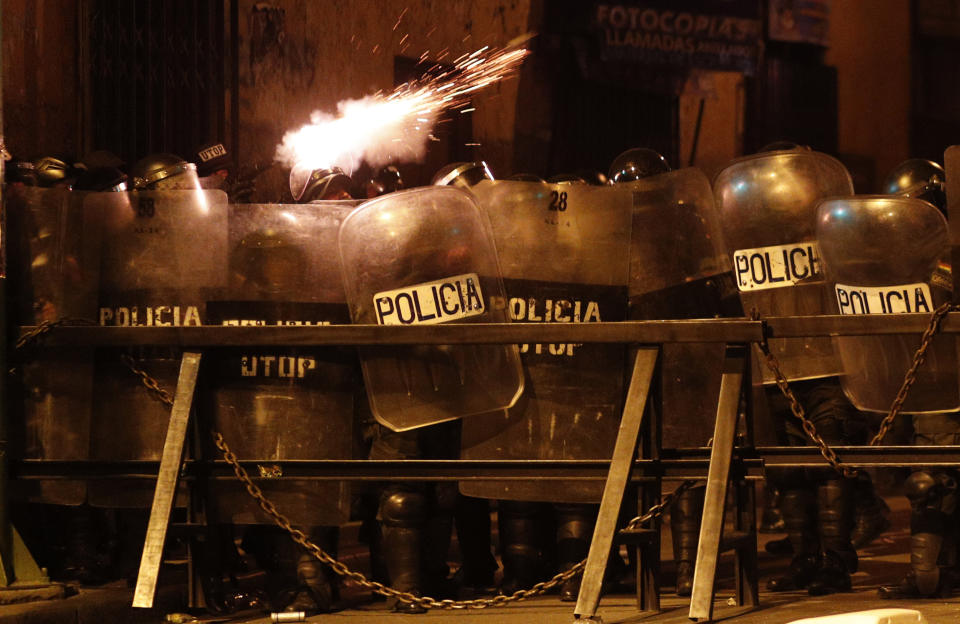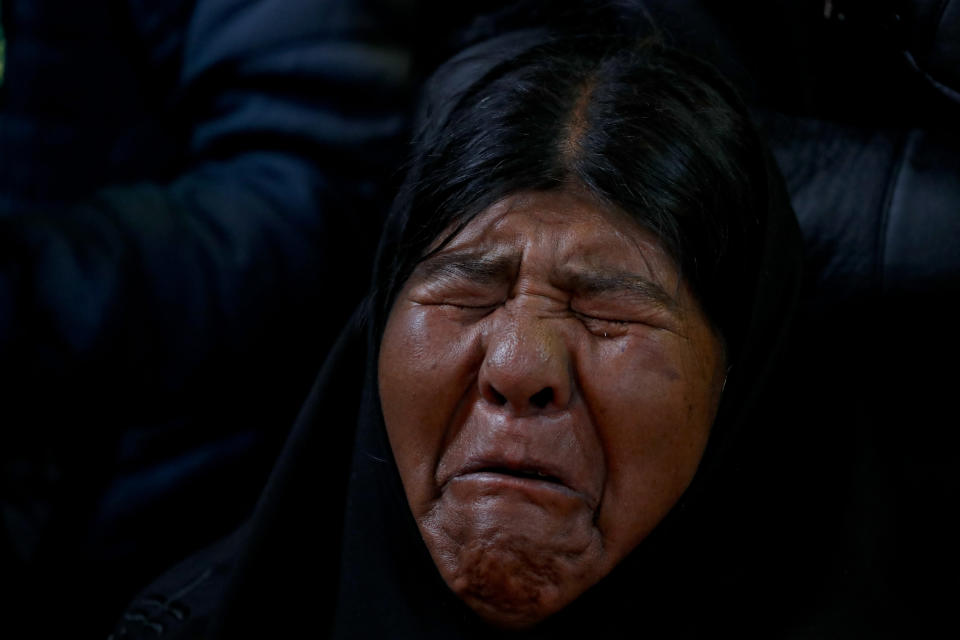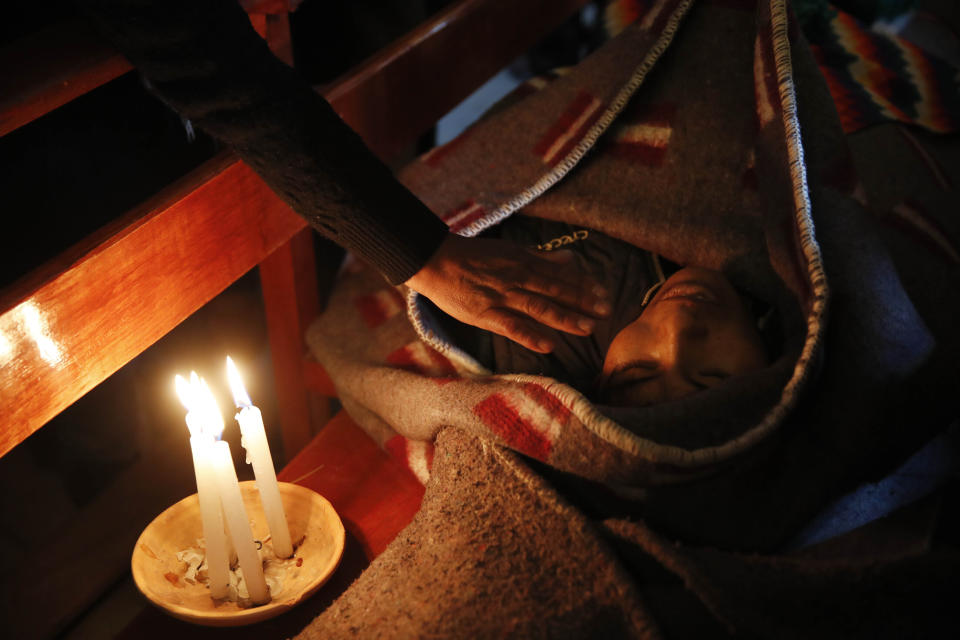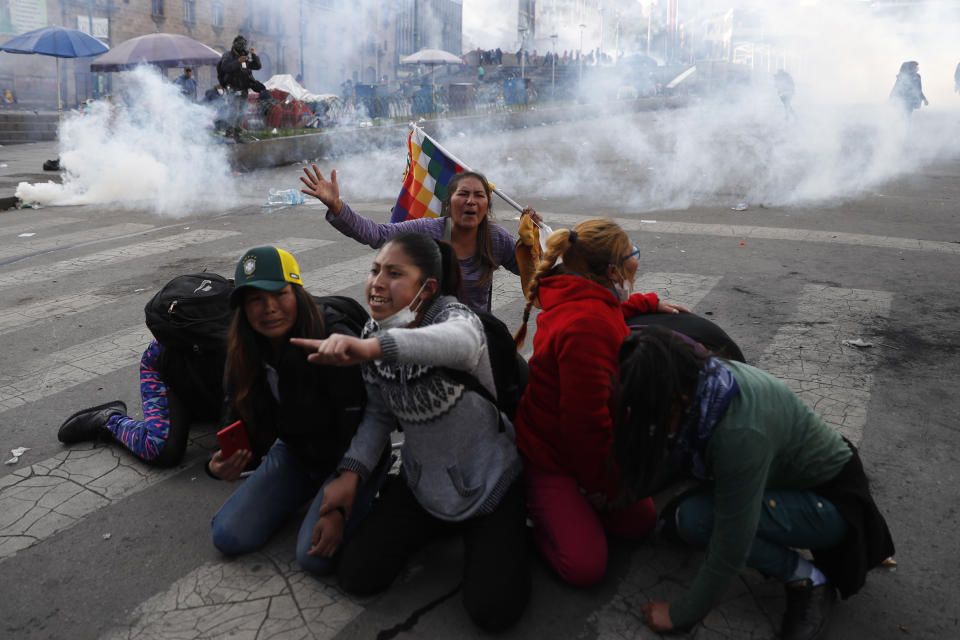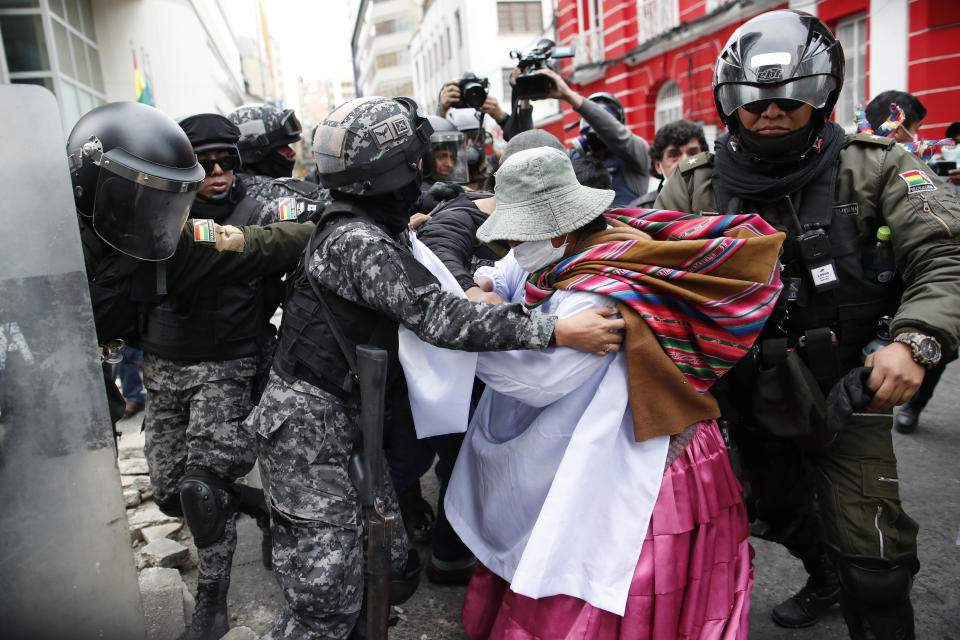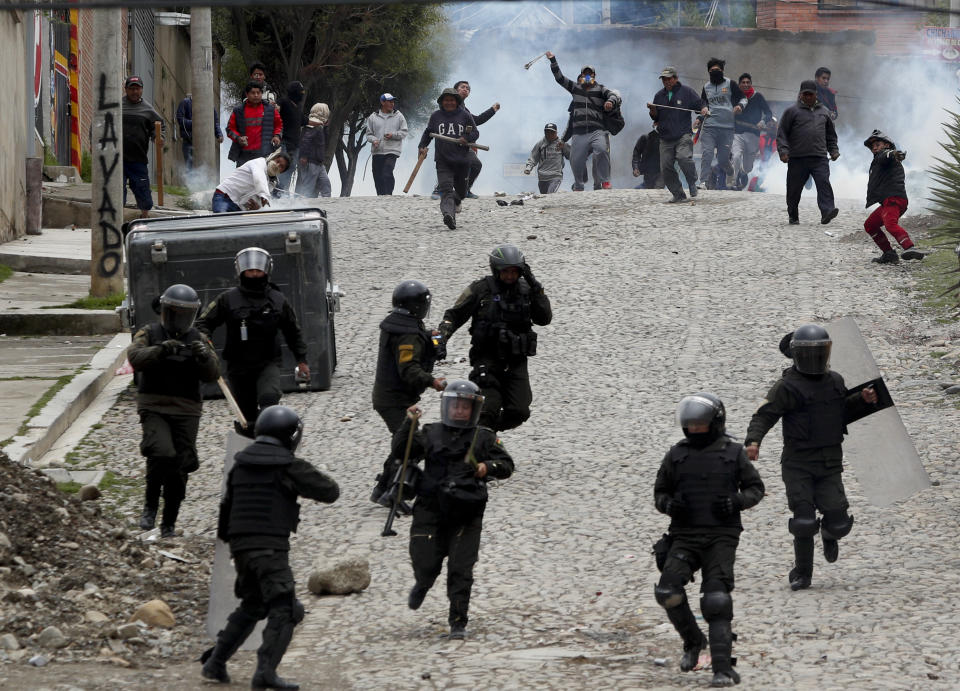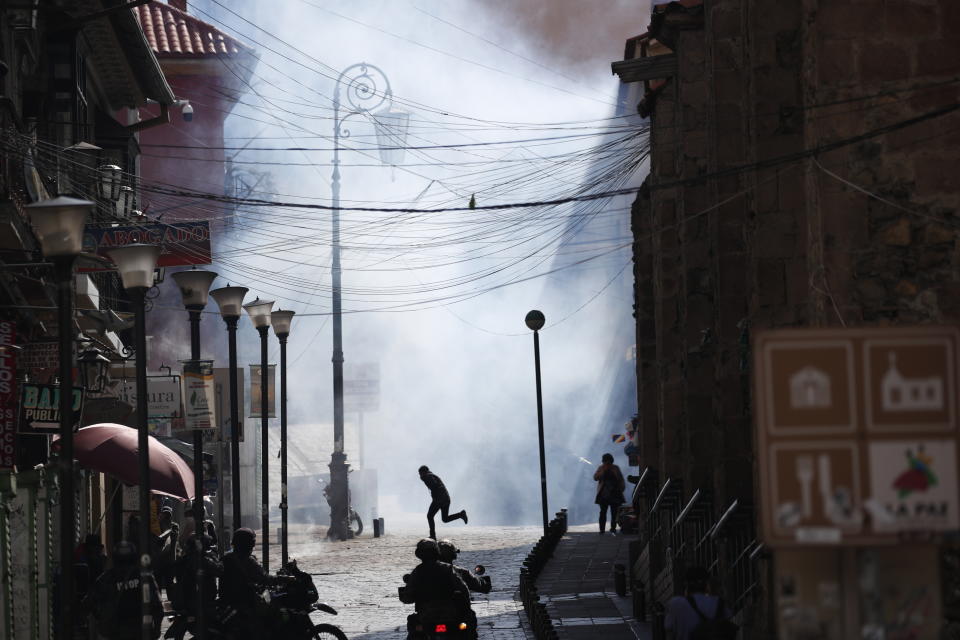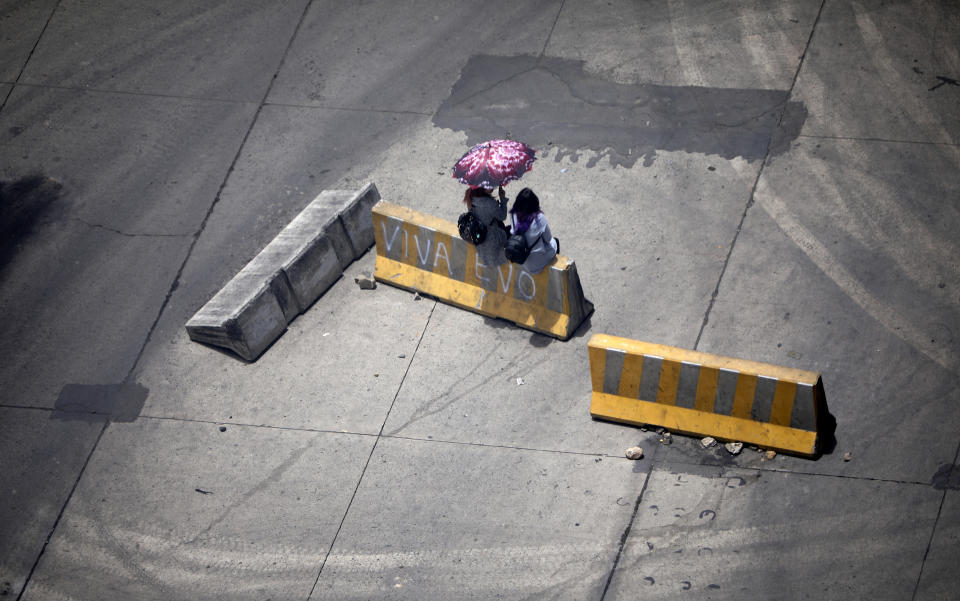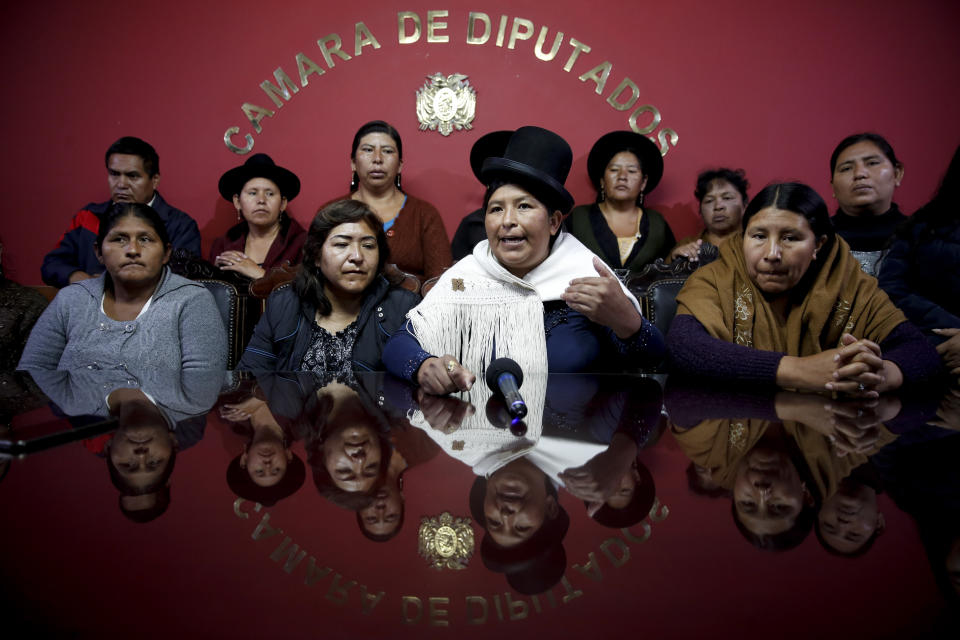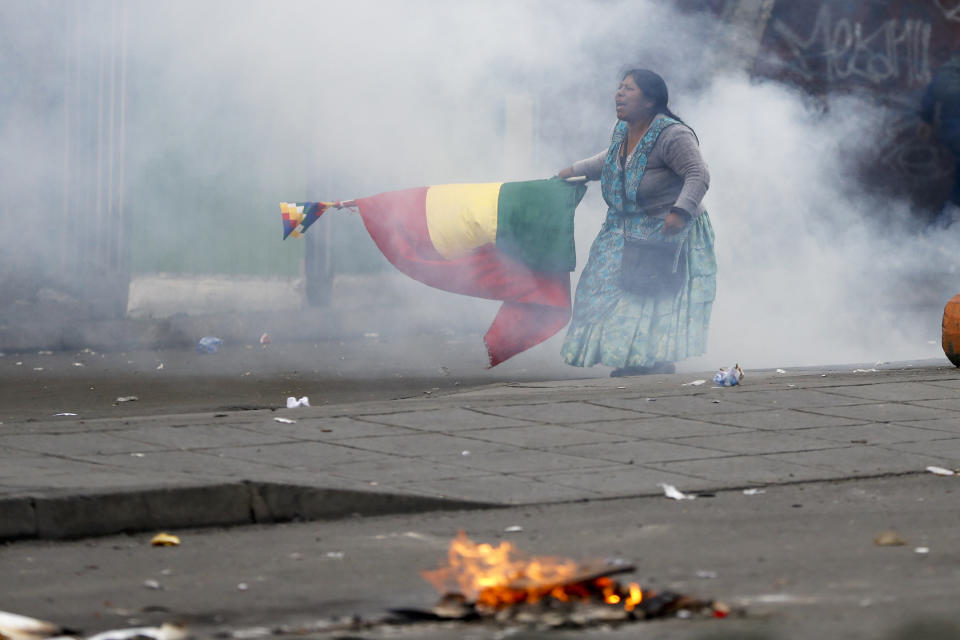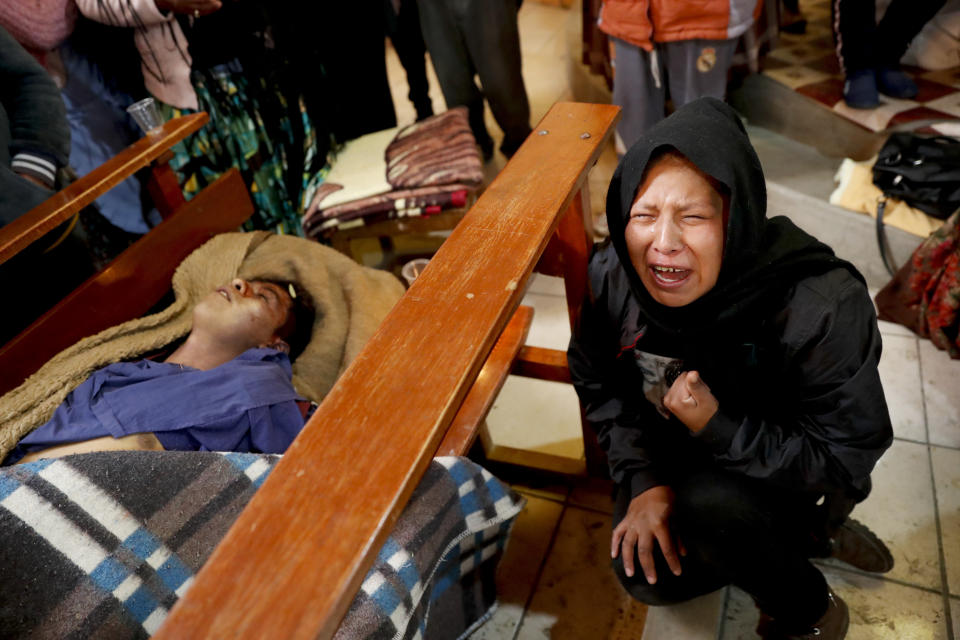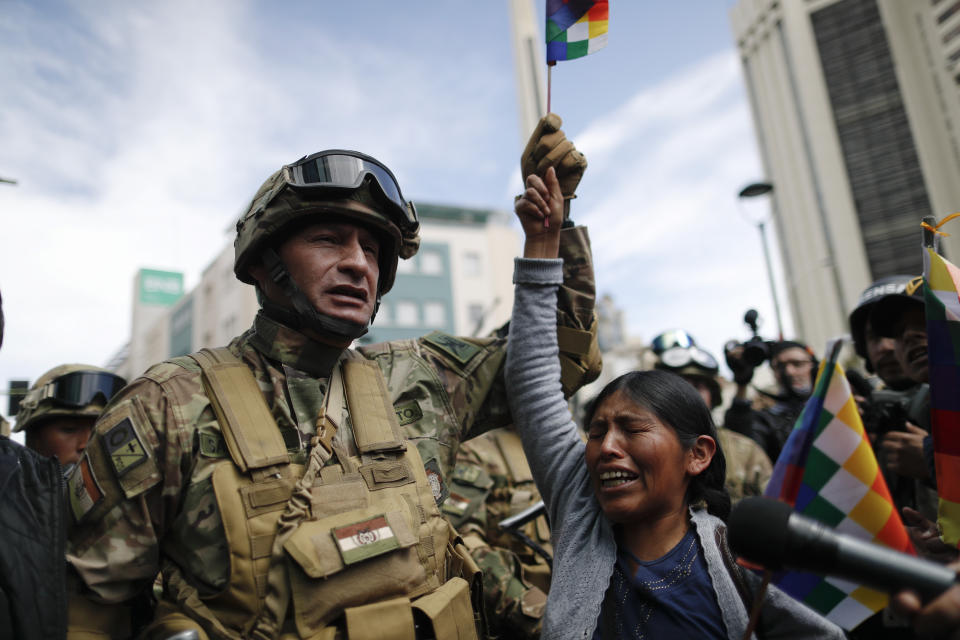AP Explains: Bolivia aims for a new vote _ without Morales
LA PAZ, Bolivia (AP) — Bolivia is struggling to stabilize after weeks of anti-government protests and violence in which at least 30 people have been killed. President Evo Morales resigned on Nov. 10 after an election that the opposition said was rigged. But the interim government that replaced him faces its own challenges as it tries to reach an accord with Morales’ powerful political party on new elections. The days ahead are critical for the Andean nation of 11 million people.
___
WHAT IS THE WAY FORWARD FOR BOLIVIA?
The constitution requires a new election within 90 days after an interim president takes office and interim leader Jeanine Áñez has sent a bill on holding new elections to the congress. Morales’ party, the Movement Toward Socialism, dominates the congress and appears to be on board with the proposal.
___
IS THERE A ROLE FOR MORALES IN BOLIVIAN POLITICS?
For now, that seems unlikely. Morales, Bolivia’s first indigenous president, ruled for 14 years and remains beloved by many Bolivians for lifting many out of poverty. However, protesters accused him of illegally clinging to power and his resignation came after the Bolivian military urged him to quit. From asylum in Mexico, he has harshly criticized the interim government and called his ousting a coup. For its part, that government says Morales would be prosecuted for electoral fraud if he returns to Bolivia and says he has stirred up violent demonstrations with incendiary rhetoric.
___
WHAT ABOUT MORALES’ POLITICAL PARTY?
The Movement Toward Socialism remains a powerful force. Most of Bolivia’s mayors, governors and biggest unions are affiliated with the party. There are also signs that the party is trying to reinvent itself following the abrupt exit of Morales. New indigenous leaders in the Movement Toward Socialism are talking about change, a sign that they are open to the idea of contesting elections without Morales as a candidate. Still, one party lawmaker has suggested Morales is entitled to be a candidate in any new elections. The different viewpoints reflect divisions within a party that has suddenly lost its leader.
___
WHAT COULD GO WRONG?
Bolivia’s violence has accelerated in the last week with the shooting deaths of protesters who were confronting security forces. On Nov. 15, nine pro-Morales coca growers were killed in the town of Sacaba while trying to break through a security cordon. Then, on Tuesday, eight people were killed when security forces cleared the blockade of a fuel plant by anti-government protesters in the city of El Alto, near La Paz. Protesters want the interim president, Áñez, to resign and for the security forces to be held accountable for alleged violations. It could become increasingly challenging to reach a political accord if the bloodshed continues.
___
IS THERE MORE TO BOLIVIA’S CRISIS?
Bolivia’s violence and political chaos is exposing old racial, ethnic and geographic divides that many thought had been overcome under Morales, whose ascent to power led the way to new rights and benefits for the nation's indigenous population. Analysts describe the movement to oust Morales as an urban middle-class revolt. Now the divide between a wealthier, more European-descended lowland east and a more indigenous, poorer, highland west is once again exposed. Some Bolivians worry the country could return to politically unstable pre-Morales times. By one count, Bolivia has had more than 190 coup attempts and revolutions since its 1825 independence in a repetitive cycle of conflict between political elites in urban areas and the traditionally disenfranchised in rural regions.
